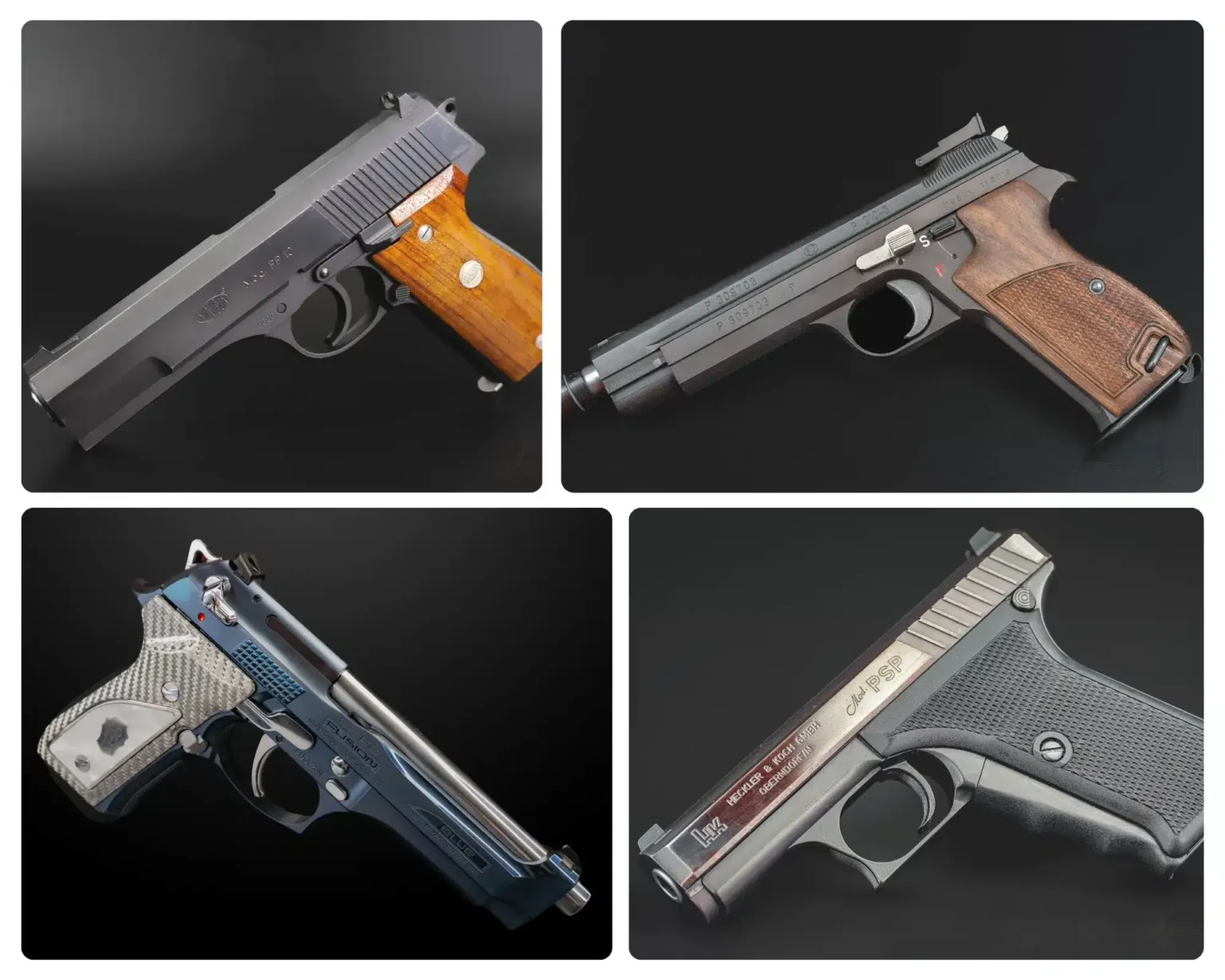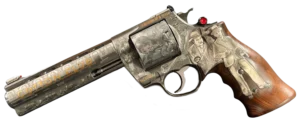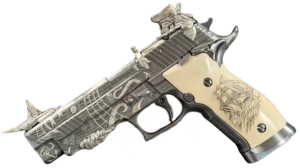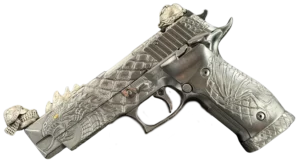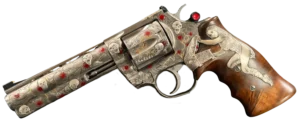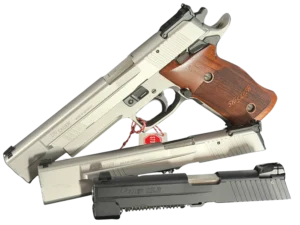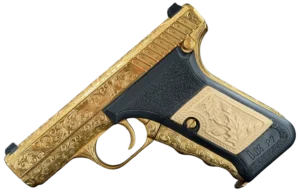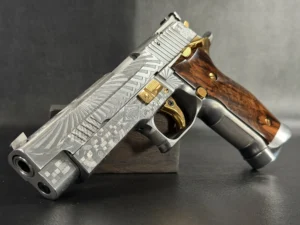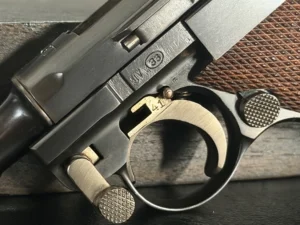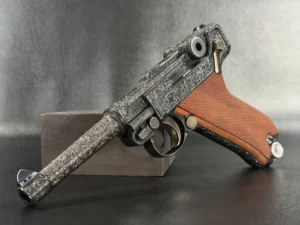Key Takeaways:
- Collecting antique firearms isn’t just about the guns — it’s about the stories: Each piece is a snapshot of history. When you pick one up, you’re not just holding a weapon; you’re holding decades (or centuries) of personal, cultural, and sometimes world-shifting history. That’s what keeps collectors hooked — the stories behind the steel.
- You don’t need to know everything to start — but you do need to care: Dive into the research. Ask questions. Mess up once or twice. That’s part of it. This hobby rewards curiosity, not perfection — so be passionate, not paralyzed.
- Preservation is a quiet act of rebellion against forgetting: Whether you’re cleaning a rust-specked barrel or swapping stories at a gun show, you’re helping make sure these relics don’t just disappear into attics and obscurity. You’re not just collecting — you’re keeping memory alive.
There’s something oddly magnetic about old firearms. Maybe it’s the way they feel in your hand — solid, worn, like they’ve seen things. Or maybe it’s the mystery behind them: who owned this? What stories could it tell? One thing’s for sure — collecting antique firearms isn’t just about owning old guns. It’s about holding onto the past, one trigger pull at a time.
What Exactly Is an Antique Firearm?
Let’s start simple. In the U.S., an “antique firearm” typically means anything made before 1899. That little date is more than a trivia fact — it’s a legal dividing line. Most of these pieces aren’t considered “firearms” under federal law, so they come with fewer regulatory strings attached. Sounds great, right? Just don’t assume it’s a free-for-all. State and local laws vary wildly, so do your homework. No one wants to accidentally break the law over a black powder revolver from 1878.
Knowing the cutoff date also helps you spot the real deal from the “almost antique” fakes. That extra bit of knowledge? It’s what separates a collector from someone just hoarding rusty metal.
Why These Old Guns Matter
Here’s the heart of it: these guns are little time machines. A flintlock musket from the 1700s isn’t just a weapon — it’s a living artifact from a revolution. A Civil War sidearm isn’t just steel and wood — it’s a witness to chaos, loss, and change.
You’re not just collecting stuff. You’re collecting moments.
Some collectors dive deep into the historical rabbit hole, piecing together stories from markings, inscriptions, or old records. Others are more hands-on, lovingly cleaning, repairing, and displaying their finds. Either way, there’s a strange magic in realizing you’re the current caretaker of something that predates the telephone.
Firearms in the Bigger Picture
Let’s zoom out for a second.
Guns — especially old ones — are soaked in cultural significance. They’ve shaped borders, decided fates, sparked rebellions, and enforced peace. Whether you admire them, fear them, or both, there’s no denying their role in shaping the world we live in.
When you collect antique firearms, you’re not just geeking out over calibers and craftsmanship. You’re tracing the arc of empires, revolutions, industrial innovation — all through the lens of something that fits in a display case. It’s weirdly humbling.
So You Wanna Start Collecting?
First, a warning: it’s a rabbit hole. A glorious, dusty, and occasionally expensive rabbit hole.
Here’s what helps:
Do Your Homework
Seriously. Don’t just buy the first thing that looks old and cool. Read. A lot. Start with books, then dive into online forums and chat with experienced collectors. There’s an entire world out there — people who’ve spent decades specializing in, say, just Prussian cavalry pistols. These folks can save you from expensive mistakes and lead you to hidden gems.
Plus, the more you learn, the more fascinating your collection becomes. Every scratch, every serial number — it all starts telling a story.
Learn to Spot the Good Stuff
Value in this world boils down to a few key things: age, rarity, condition, and provenance (that’s a fancy word for “backstory”). A battered revolver might be worth a fortune if it was carried at the Battle of Little Bighorn. Or it might be worth fifty bucks. You gotta know the difference.
Condition matters too — rust is the enemy, and mismatched parts can tank value. And when in doubt? Ask someone who knows more than you.
Start Small, Think Big
Focus your collection early. Pick a specific war, era, manufacturer — whatever speaks to you. That way, you’re building depth, not just stacking random pieces. Plus, it’s easier to justify that “one last purchase” when it clearly fits into your grand master plan.
Go to gun shows. Check out estate sales. Be patient. Sometimes the right piece takes its sweet time finding you.
Have a Plan
Look, it’s easy to get excited and blow your budget on something flashy. Set boundaries. Decide what kinds of firearms you’re hunting for and what you’re willing to spend. It’ll save you heartache and credit card pain later.
Also, revisit that plan once in a while. Interests change. Maybe you started collecting muskets and now you’re obsessed with early semi-autos. That’s fine. Collections evolve.
The Not-So-Sexy Side: Maintenance
Let’s talk about care. Because here’s the thing: these guns are old. Like really old. And if you don’t treat them right, they’ll fall apart on you.
Keep Them Clean (but Gently)
No, you don’t need to scrub your 1851 Navy like it’s a Glock. Use a soft cloth. Appropriate solvents. Go easy — you’re preserving, not restoring. Over-cleaning can strip away original finish and hurt the value.
And for the love of powder, store them somewhere dry. Humidity is your mortal enemy. A gun safe with a dehumidifier is a solid investment.
Handle With Respect
These aren’t toys. Even if they’re non-functional, they deserve care. Use gloves if you’re handling high-value pieces. Keep them out of direct sunlight. Don’t let your cousin’s kid wave it around like it’s a prop.
When displaying, use secure mounts or padded cradles. Your antique shouldn’t be balancing on two nails in a garage wall. You get the idea.
Think Long-Term
Preservation is a mindset. Regular checkups. Minimal handling. Silica gel packs in the display cases. You don’t need to be obsessive, but you do need to be consistent.
If something’s rare or fragile, consider talking to a restoration expert. Sometimes it’s better to leave a piece alone than to mess it up trying to DIY.
Your People: The Collector Community
You’re not alone in this. Far from it.
There’s a massive, passionate, occasionally quirky community of firearm collectors out there. Some are into pre-Civil War revolvers. Others are all about WWII bolt-actions. Some don’t even collect — they just love talking shop.
Find Your Tribe
Forums. Facebook groups. Local clubs. Gun shows. Historical reenactments. Trust me — the people you’ll meet are half the fun. They’ve got wild stories, weird knowledge, and sometimes even spare parts.
And trading pieces with fellow collectors? Way more satisfying than buying from a stranger.
Go to Events
Seriously, don’t skip this. Collector conferences and antique gun shows are treasure troves — not just for finds, but for the conversations, lectures, and “oh wow” moments. You’ll learn things you didn’t even know you needed to learn.
And who knows? That random guy you chat with at a booth might become a lifelong collecting buddy.
Share What You Know
This is the part most people overlook.
As your collection grows, so does your knowledge. Write an article. Give a talk. Help out a newbie. You’re not just building a collection — you’re building a legacy. Share it.
You never know who you’ll inspire.
Let’s Talk Legal Stuff (Sorry)
Yeah, this part’s a little boring, but it’s essential.
Know the Rules
Federal laws. State laws. Local ordinances. They don’t all play by the same rules, especially when it comes to antiques. Some states treat black powder arms like any other firearm. Others don’t.
Do your research. Ask experts. Join a collector’s association with legal resources. The last thing you want is to lose a treasured piece over a paperwork issue.
Keep Records
Provenance isn’t just cool history — it’s legal protection. Keep receipts. Document transfers. Maintain a log of serial numbers, photos, and conditions.
Also, if your collection gets large or valuable? Look into insurance. Trust me, you’ll sleep better.
International Curiosity?
Thinking about importing a cool flintlock from Italy or Germany? That’s a whole other ball game. International firearm laws are their own beast, and the paperwork isn’t light.
Hire a broker or talk to a customs expert. It’s worth it.
The Payoff: Why It’s All Worth It
At some point, you’ll sit back and realize your collection tells a story. Not just of wars and inventions — but of your own curiosity, dedication, and passion.
It’s Personal
This isn’t just about history. It’s about your connection to that history. Maybe you’re holding a pistol similar to the one your great-grandfather carried. Maybe it’s just a beautiful piece of old-world craftsmanship.
Whatever it is — it means something to you. And that’s enough.
You’re Keeping Something Alive
Preserving these pieces is important. They don’t make them like this anymore. Each one saved, cleaned, and cherished is a little rebellion against forgetting.
You’re a caretaker. A storyteller. A link in the chain.
It Grows With You
Collecting firearms isn’t static. You’ll change. Your collection will change. You’ll outgrow some pieces. Fall in love with others. That’s the beauty of it. It’s a journey. And like any good journey, it comes with surprises, frustrations, and moments of pure joy.
Final Thoughts: It’s More Than a Hobby
Let’s be real — this isn’t just “something to do.” Firearm collecting is a commitment. A passion. A quiet, sometimes obsessive way of connecting with the past and, oddly enough, with people too.
So whether you’re just getting started or you’ve got safes full of iron and walnut, keep the spirit alive. Learn. Share. Preserve.
Because somewhere down the line, someone’s going to thank you for keeping the story going.
Frequently Asked Questions
Firearm collecting is rewarding because it combines historical significance, craftsmanship appreciation, and the preservation of cultural heritage. Collectors often enjoy owning pieces that tell stories about pivotal historical moments.
Before starting, consider your budget, storage requirements, and areas of interest (e.g., military firearms, rare pistols, or vintage rifles). Researching laws and acquiring necessary licenses are also crucial.
Factors like rarity, historical significance, condition, and provenance affect a firearm’s collectibility. Limited-edition models, prototypes, and firearms with unique stories tend to be highly sought after.
Store firearms in a secure, climate-controlled environment to prevent rust and damage. Regularly clean and inspect them using proper materials to maintain their condition.
Appraisals by experts, auction records, and market trends can help determine a firearm’s value. Joining collector forums and networking with other enthusiasts can provide additional insights.


